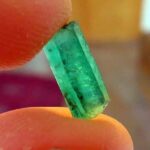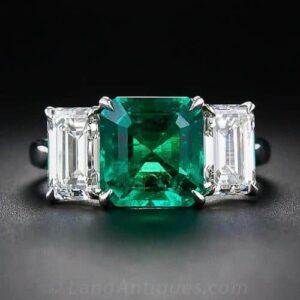
Emerald is the green variety of the mineral beryl, owing its vibrant color to a trace amount of chromium and occasionally a slight trace of vanadium. The majority of emeralds contain several inclusions of softer minerals. These inclusions have been termed “jardins”, meaning gardens in French. Occasionally, these inclusions make it difficult to set the emeralds without damaging the gem. Emeralds have been cherished since man first discovered them and they are one of the most valuable of all gems. At times, emeralds have been more desirable than diamonds, rubies, or sapphires.
A Brief History of Emerald
Emeralds were discovered in southeastern Egypt more than 3000 years ago. The Egyptians, Greeks, and Romans worked these vast emerald mines for centuries. These mines have long been inactive. Today, some of the finest emeralds in the world are mined in Colombia. Other sources include Russia, Brazil, Zimbabwe, Tanzania, and Zambia.
Pliny, the Roman Scholar, was one of the first to write about emeralds, praising their vibrant green color as representing the coming of a beautiful and hopeful spring. Pliny described a sculpted marble lion, in the tomb of King Hermias on Cyprus, overlooking the sea. The lion’s eyes were fashioned out of natural emeralds that were so bright they scared away all the fish. The fisherman replaced the eyes with common stones and the fish returned. In medieval times, emerald was used as a cure for eye disease and a guard against the evil eye and epilepsy. Emperor Nero treated his failing eyesight by watching gladiator combats through an emerald crystal.
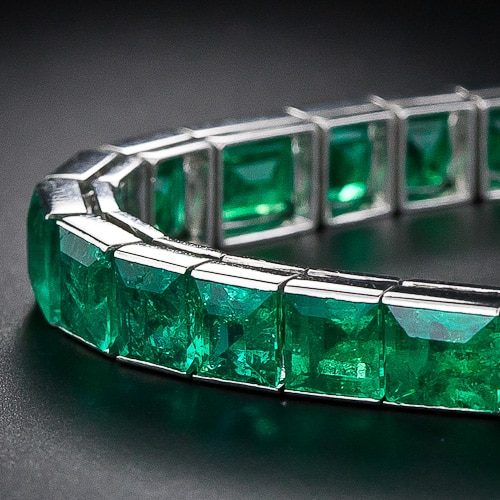
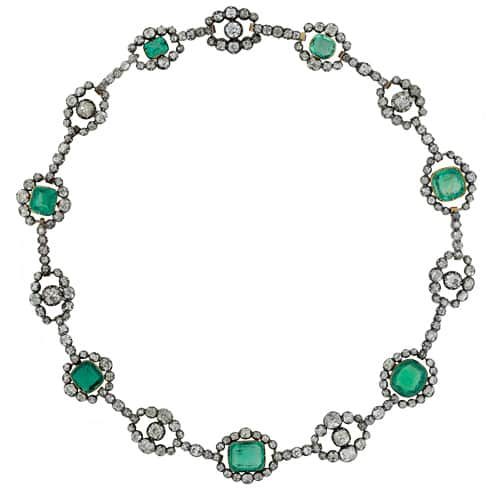
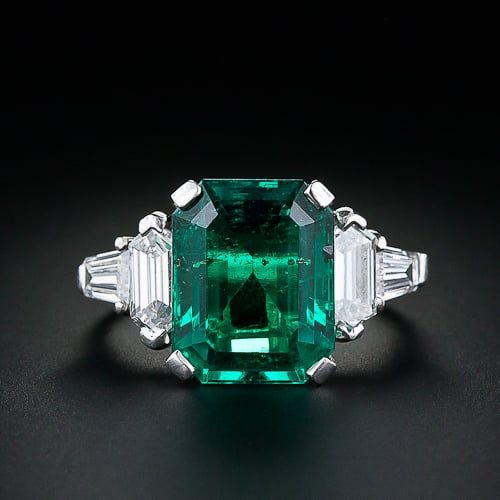
The Holy Grail is reputedly carved from a large emerald crystal that fell from Satan’s crown as he descended from Heaven to Hell! The emerald’s sacredness lead to a biblical writer describing the throne of God as surrounded by a rainbow that looked like an emerald. (Revelation 4:3)
The emerald is the birthstone for May, and one of the gemstones for Cancer, the House of the Crab. It also commemorates the 20th and 35th Anniversary.
Shop at Lang
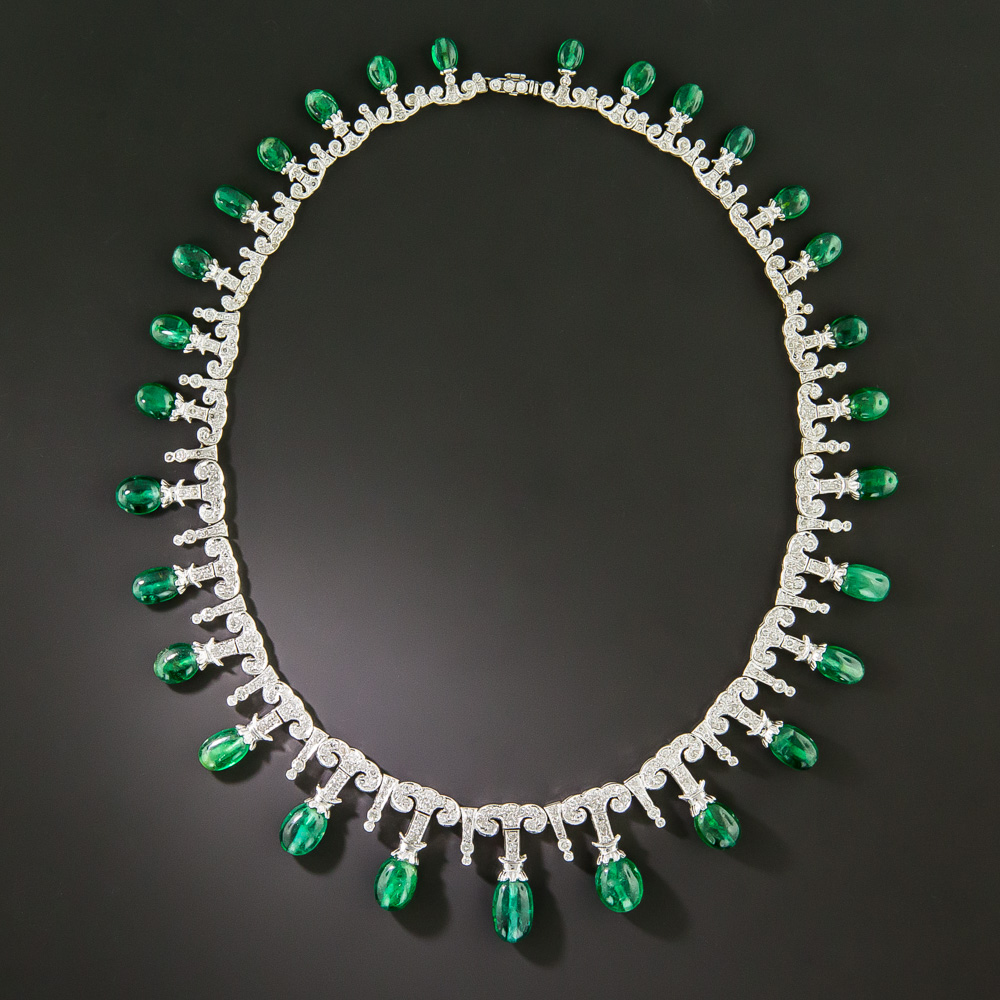
Art Deco-Style Emerald Bead and Diamond Fringe Necklace
Once it takes its rightful place around your neck, you'll experience an immediate sense of regal splendor and will, quite naturally, assume a queenly air. This…
SHOP AT LANG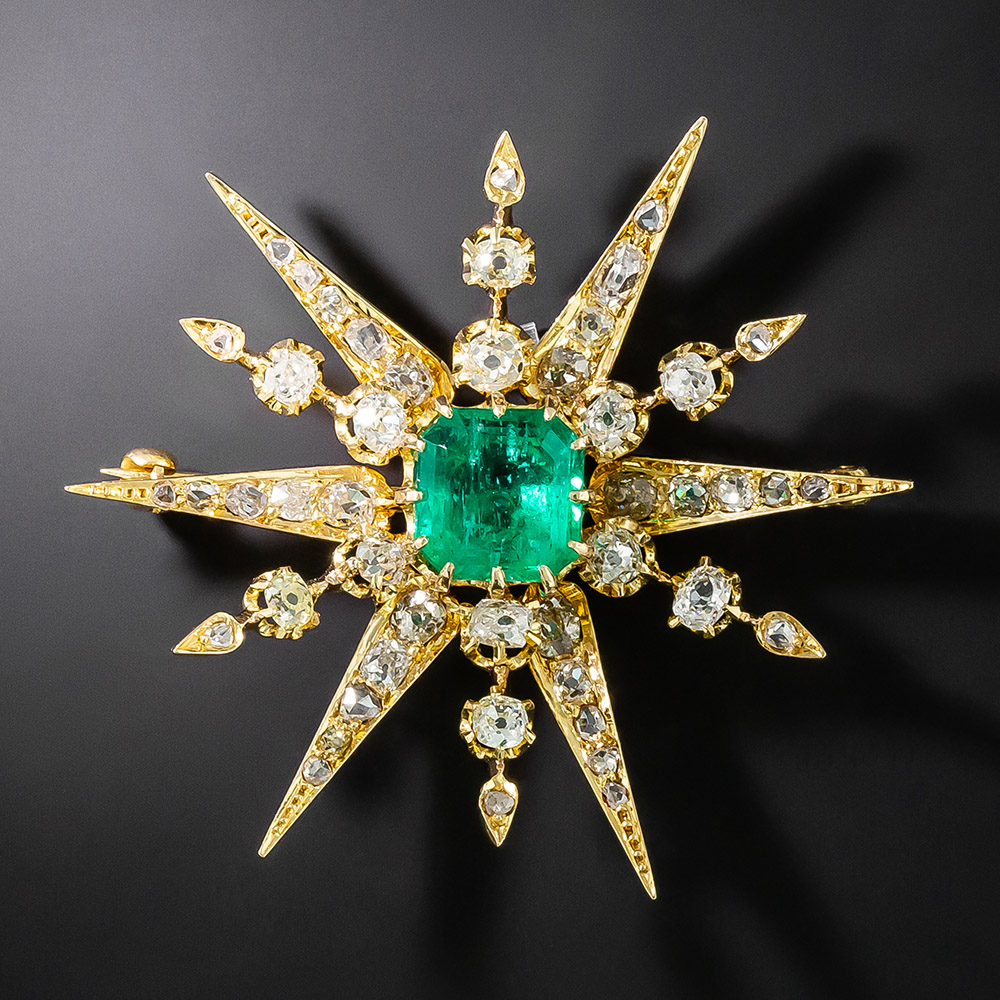
Antique Emerald and Diamond Starburst Brooch
A resplendent emerald of rare Russian origin, weighing 4.50 carats, radiates with a gorgeous richly saturated vibrant green hue from the nucleus of this stellar…
SHOP AT LANG
Gemological Information for Emerald
| Color: | Green with Blue or Yellow Tones |
| Crystal Structure: | Hexagonal |
| Refractive Index: | 1.566-1.600 |
| Durability: | May be Fragile/Brittle |
| Hardness: | 7.5-8 |
| Family: | Beryl |
| Similar Stones: | Confusion is Possible with Tourmaline, Diopside, Fluorite and Green Glass |
| Treatments: | Emerald is Routinely Fracture Filled and/or Oiled |
| Country of Origin: | Brazil, Colombia, Africa |
Emerald Care
| Ultrasonic Cleaning: | Not Safe |
| Steam Cleaning: | Not Safe |
| Warm Soapy Water: | Safe |
| Chemical Attack: | Usually Resistant |
| Light Sensitivity: | Stable |
| Heat Sensitivity: | Very Sensitive, Unstable |
